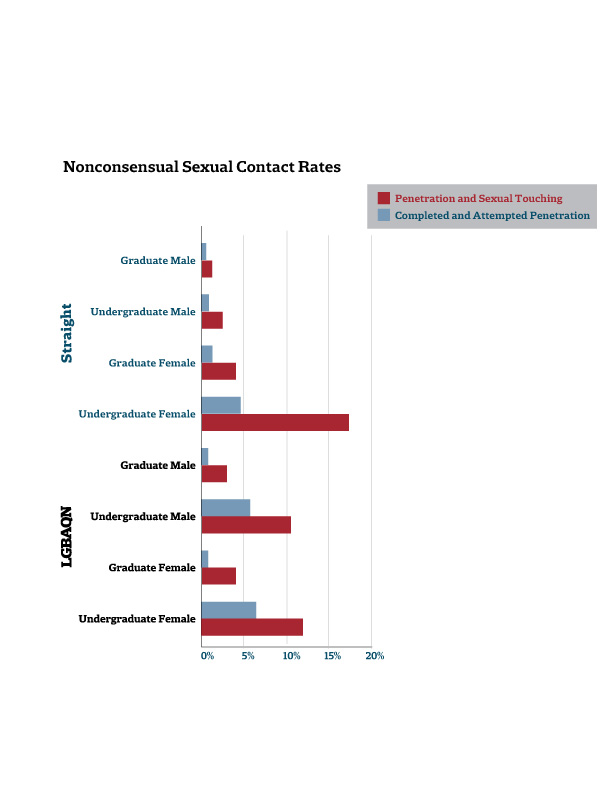
News
Summers Will Not Finish Semester of Teaching as Harvard Investigates Epstein Ties

News
Harvard College Students Report Favoring Divestment from Israel in HUA Survey

News
‘He Should Resign’: Harvard Undergrads Take Hard Line Against Summers Over Epstein Scandal

News
Harvard To Launch New Investigation Into Epstein’s Ties to Summers, Other University Affiliates

News
Harvard Students To Vote on Divestment From Israel in Inaugural HUA Election Survey
Graduate Students Question Data About BGLTQ Sexual Assault

Concerned that the prevalence of sexual assault among BGLTQ students has been misrepresented, six BGLTQ student groups from across Harvard sent an email to University President Drew G. Faust asking her to clarify the results of last semester’s survey about campus sexual assault.
The email asks for more specific data about the rate of sexual assault among BGLTQ students and clarifications about how the survey categorized students by sexuality and gender. The groups’ requests surface more than two weeks after a University-wide task force called for additional resources dedicated to the prevention of sexual assault among students identifying as lesbian, gay, bisexual, asexual, and questioning. Specifically, the report recommends more resources for BGLTQ students at Harvard’s graduate schools.
All six of the students groups that signed the email are graduate student organizations, namely Harvard Law School Lambda, Harvard Law Queer & Trans People of Color, Harvard Business School LGBT Student Association, LGBTQ at Graduate School of Arts and Sciences, LGBTQ Policy Journal at Harvard Kennedy School, and Queer Ed at the Harvard Graduate School of Education. In their email, the groups also copied Dean of the College Rakesh Khurana and Harvard Law School Dean Martha L. Minow.
Last year, Harvard, along with 26 other schools and the Association for American Universities, conducted a survey about sexual assault on their respective campuses. The results, released in September 2015, revealed a higher prevalence of sexual assault among students identifying as LGBAQN—a term the survey used to describe lesbian, gay, bisexual, queer, asexual, and “not listed” students.
According to the AAU report, 17.9 percent of LGBAQN undergraduate females reported nonconsensual contact involving physical force or incapacitation during the 2014-2015 academic year, compared to 12 percent of straight undergraduate females. Among LGBAQN undergraduate men, the rate of nonconsensual penetration and sexual touching was 10.9 percent, nearly eight percent higher than straight males during that time period.
Four percent of LGBAQN graduate or professional school women reported nonconsensual sexual contact involving physical force or incapacitation during that time period, compared to 2.9 percent of LGBAQN graduate or professional school men.
The groups praise portions of the AAU survey’s methodology, including the number of gender options provided and the breakdowns of responses for “Transgender, Genderqueer or non-conforming, Questioning, Not Listed” students. But, they express concern that certain questions and categories may have failed to “fully capture the range of BGLTQ individuals’ experiences.”
The letter expresses concerns about the rate of response among “Transgender, Genderqueer or non-conforming, Questioning, Not Listed” students. The survey indicates that “there were not enough respondents in the TGQN group to generate reliable estimates.” The groups also note that students’ gender identities or presentations at the time they took the survey may differ from when they were assaulted.
“Going forward, we hope that the data obtained in this survey can help make future surveys and efforts to address sexual assault even more inclusive,” the email reads.
In an emailed statement, University spokesperson Jeff Neal wrote Faust will soon respond to the student groups’ correspondence.
“As she indicated in accepting the Task Force recommendations, we all have much more to do together to prevent sexual assault. The report highlighted the particularly disturbing rate of sexual assault in the BGLTQ community and it is clear that there is more to learn about that critical issue,” the statement reads. Neal also pointed to the creation of a new position in the Provost’s office dedicated to sexual assault prevention, a stipulation of the task force, as one way Harvard will better coordinate sexual assault prevention efforts.
Anna E. Joseph, a third-year student at Harvard Law School and co-president of Harvard Law School Lambda said she and other Law School students spearheaded the letter. They reached out to student groups at other Harvard schools, including the Kennedy School, the Business School, and the Graduate School of Education, to solicit a response from Faust, Joseph said.
“We thought we would get President Faust’s attention if we could make it a cross school coalition,” Joseph said. “So we reached out to other LGBTQ organizations and they were super supportive.”
Many of the University-wide task force’s recommendations, like annual sexual assault prevention training for every Harvard student, could take effect as early as next academic year.
—Staff writer Andrew M. Duehren can be reached at andy.duehren@thecrimson.com. Follow him on Twitter @aduehren.
—Staff writer Daphne C. Thompson can be reached at daphne.thompson@thecrimson.com. Follow her on Twitter @daphnectho.
Want to keep up with breaking news? Subscribe to our email newsletter.
